Author: Natasha Payés
Jaden Bryan, BS 24: Worth the Haas-le–What I wish I’d known about recruiting before business school
Jaime Raul Zepeda, EWMBA 19: Serving the community through civic leadership
Reunited! Evening & Weekend and Executive MBA graduation highlights
Donned in full regalia, graduates of both the Berkeley Haas Evening & Weekend and Executive MBA classes of 2020 and 2021 reunited on campus last weekend for in-person commencements.
The graduates crossed the stage, collected diplomas, and celebrated in the sunshine with classmates, family, and friends. (The EWMBA ceremony was held at Zellerbach Hall, while the EMBA ceremony was held at Hertz Hall.) The in-person events followed separate virtual commencement ceremonies held in May 2020 & 2021.
Here are a few highlights from Saturday’s ceremonies:
Om Chitale, MBA 18, receives first Equity Fluent Leadership Award
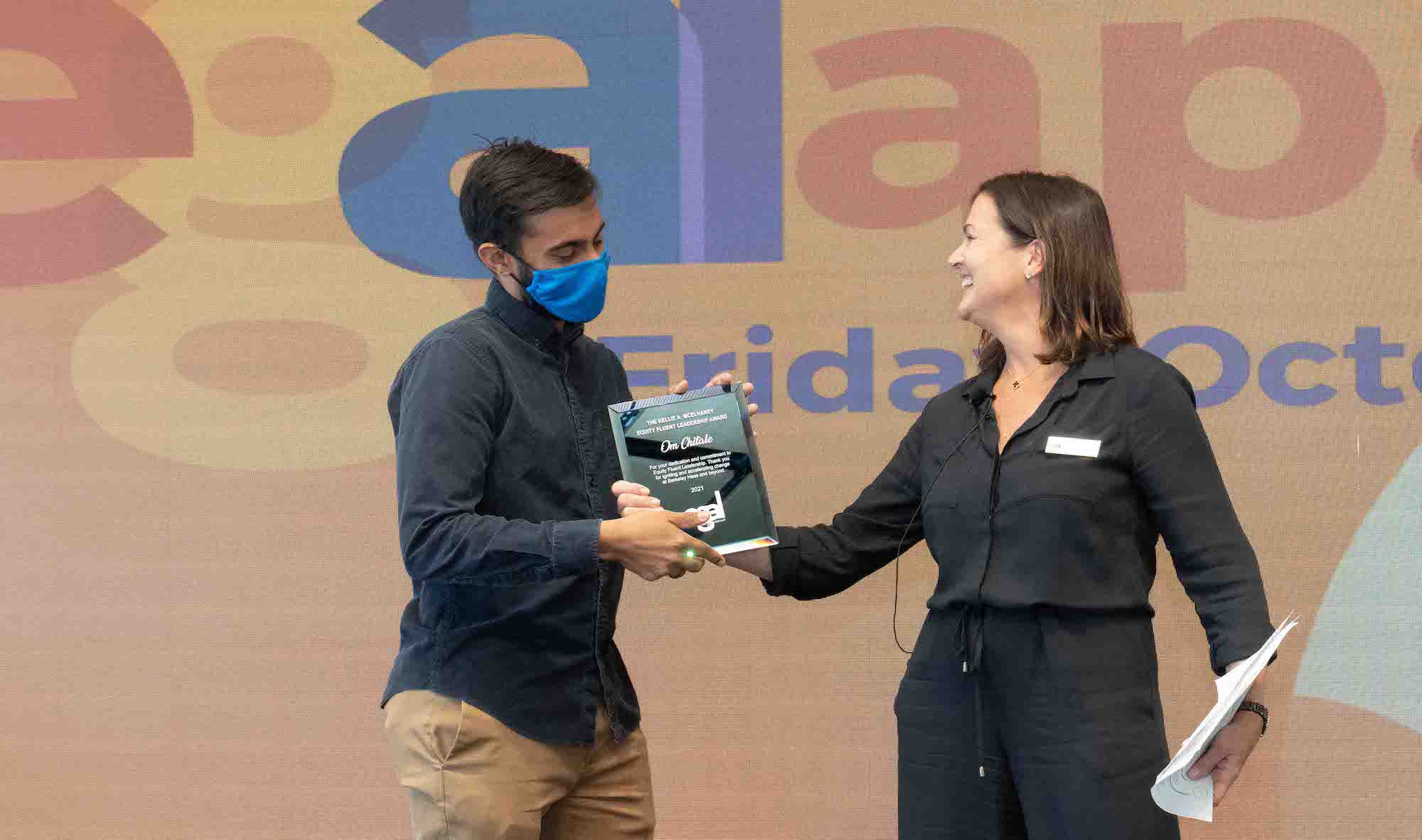
Om Chitale, MBA 18, has won the school’s first Kellie A. McElhaney Equity Fluent Leadership award for championing diversity and inclusion initiatives at Haas and beyond.
Chitale, the former director of diversity for Berkeley Haas’ Full-time MBA Admissions, received the award at the Center for Equity, Gender & Leadership’s “EGALapalooza” diversity celebration last Friday.
The award, named for and funded by EGAL’s founding director Kellie McElhaney, recognizes members of the Haas community who have made significant contributions toward building an inclusive and equitable community at Haas and beyond.
“Om walks through life with a halo of light and love and acceptance and has left a profound impact on our community,” McElhaney said at the event, which brought together about 75 students, faculty, and staff, at Spieker Forum in Chou Hall.
“Om walks through life with a halo of light and love and acceptance and has left a profound impact on our community.” — Kellie McElhaney
While a student at Haas, Chitale and classmate Liz Koenig, MBA 18, co-founded the student-led class called Dialogues on Race. He also led the charge to create EGAL’s first Investing in Inclusion Pitch Competition. After graduation, he founded startup Teachers of Oakland, with the aim of sharing first-person stories from the city’s public school teachers to social media. He later joined the full-time MBA Admissions’ team as its first director of diversity.
McElhaney noted that Chitale was “a real thought partner” who encouraged cross-campus collaboration between students, faculty, and staff on DEI initiatives.
“It’s incredible to be part of this [Haas] community with people who are pushing the envelope, questioning the status quo, and taking action,” said Chitale, who recently left Haas to serve as LinkedIn’s senior program manager of Inclusion Recruiting Partnerships. “This work [DEI] has ripples of impact and so I encourage everyone to continue to take action,” he said.
Other notable EGALapalooza guest speakers and performers included Derek Brown, PhD 23; Ashley Rabinek, director of merchandising at Old Navy; Verse Gabrielle, associate director of full-time MBA Admissions; and singer and songwriter Dominique Gomez.
Haas Voices: ‘Fighting for healthcare equity in my community’
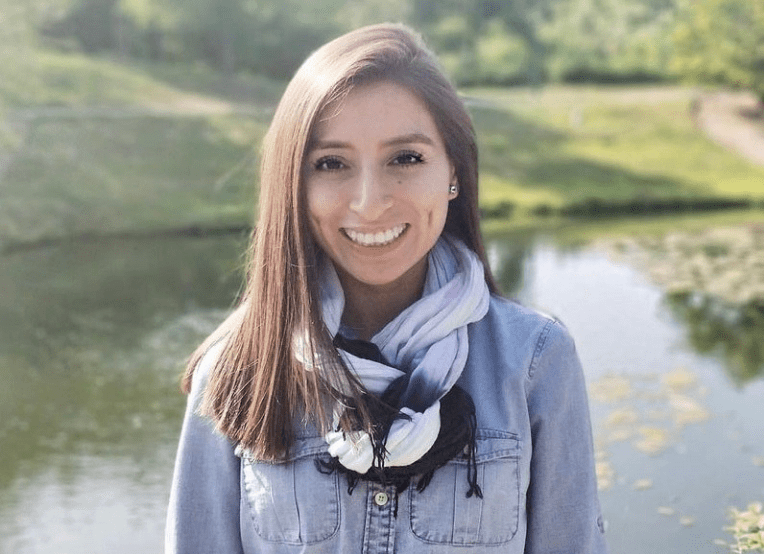
Haas Voices is a first-person series that highlights the lived experiences of members of the Berkeley Haas community. In honor of Latinx Heritage Month, we spoke with Adilene Dominguez, EWMBA 24, who’s determined to create a new business model that will provide equitable health care to everyone, regardless of economic status. She shares her story below.
Growing up in Waukegan, Illinois, a suburb north of Chicago, I lived in a world with many blessings. My parents weren’t millionaires, they were migrant workers who worked 80 hours a week. But the opportunities afforded to us–access to public schools, tutors, health insurance, the ability to find work–were privileges that many Latinos in my community, including my extended family members, did not have.
I began to notice inequities, specifically in healthcare, when I was about five years old. I often accompanied friends and family whenever they needed to see the doctor. They spoke little English, so I translated on their behalf. I noticed that they’d have to stand in line for hours at the local clinic to get medical treatment, whereas if I needed medical care, my parents would take me to a hospital because I had health insurance. It just didn’t seem fair to me that our friends and family couldn’t get the same quality health care as I did.
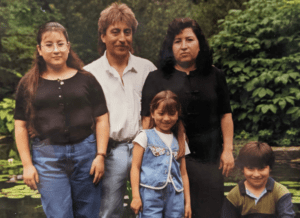
Observing those disparities early on, coupled with a natural aptitude for science and math, led me to Beloit College where I joined the pre-med program. As a pre-med student, I interned with doctors and volunteered at hospitals, but quickly realized that I didn’t want to be a doctor. I thought that I’d have a greater impact if I could find a way to bring equitable health care to my community.
After college, I landed at Becton Dickinson (BD), a medical device company, working as a research and development (R&D) technician. I moved up the ranks from a technician to a scientist and eventually transitioned from R&D to global marketing and strategy.
I also lead the Hispanic Organization for Leadership and Advancement (HOLA) at BD. Through my work with HOLA, I help raise awareness within my industry about health disparities that impact the Latino community. When the pandemic hit, access to testing was limited, especially in Latino communities in California, Arizona, and Texas. I, along with marketers across eight HOLA chapters, decided to advocate for the distribution of Veritor, a rapid antigen test that can detect the COVID-19 virus, to health clinics servicing Latino communities. Through our efforts, we helped the Family Health Center of San Diego, which provides care to more than 215,000 patients a year, 91% of whom are considered low-income and 29% are uninsured.
It’s been gratifying to help my Latino community as it’s been disproportionately impacted by the COVID-19 pandemic. But I need to do more. The pandemic magnified health disparities that have long existed in Black and Brown communities. Whenever there’s a hurricane, earthquake, or any natural disaster, health care seems to be the primary resource that’s out of reach for these communities.
The pandemic magnified health disparities that have long existed in Black and Brown communities.
That’s why I’m at Haas. I want to acquire the skills needed to disrupt the healthcare system in the U.S. I want to design a profitable business model that will provide equitable health care for everyone, regardless of socioeconomic status.
What does disruption look like? It’s putting the patient first and profit last. Currently, the way healthcare works in the U.S. is that whoever or whichever entity has the most influence or paying power gets access to the best medical supplies. Typically government contracts are fulfilled first. Thereafter, private institutions and public institutions get priority, and community health centers are served last.
But what if we flipped the funnel? If we help community clinics first, which serve people like farmers and hourly-wage workers–the people who are growing our food and working at grocery stores and other service industries–we can prevent the spread of any disease.
For too long, our approach to providing health care has come from the top down, when we really need to flip the funnel and think about the process much differently. We can’t keep doing business as usual when there are hundreds of people filling up the emergency room because they don’t have access to COVID-19 testing or vaccines.
Creating a new business model for the healthcare system is a lofty goal. But someone has to do it, so why not me?
Creating a new business model for the healthcare system is a lofty goal. But someone has to do it, so why not me?
I know that I’m putting a lot of pressure on myself, but it’s my responsibility to help my community. That philosophy has been ingrained in me since I was a little girl. My family, who migrated from Tonatico, Mexico, made enormous sacrifices so that my siblings and I could have a better life. So I must move forward and be a role model for younger generations. If I don’t help my community, who will?
Yannell Selman, MBA 21: Educator turned female founder
Stuart Russell: A deep dive in AI ethics, design, and human compatibility
Lo Toney, MBA 97: Leading investors to become the best fund managers
Culture fund recipients go beyond themselves
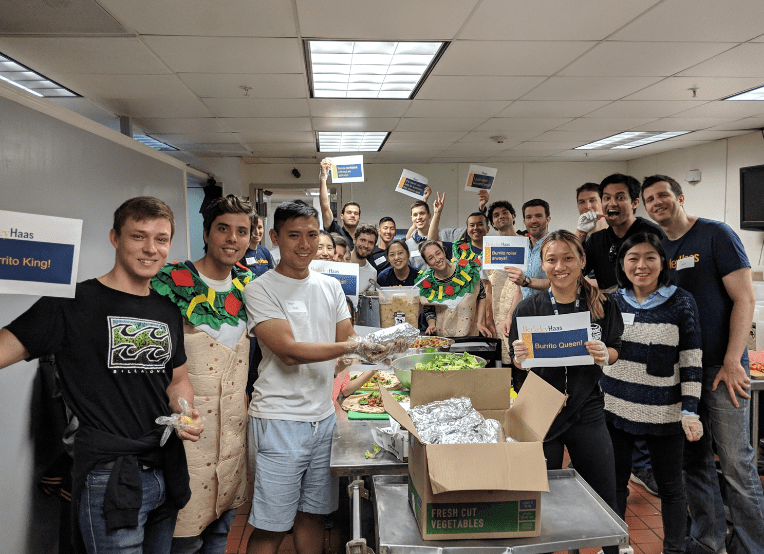
In January 2020, Prof. Omri Even-Tov and a team of Berkeley Haas students and alumni spent a Saturday preparing and delivering bagged lunches and hygiene kits to dozens of unhoused people living in Berkeley in Oakland. By day’s end, the 25 volunteers had delivered about 400 meals and 200 hygiene kits to the encampments.
“Our students and alumni walked into the [homeless] encampments with food and walked out with empathy and compassion for a population living amongst us, but seemingly invisible,” Even-Tov said.
Even-Tov is among 12 Haas teams who have received Berkeley Haas Culture Fund Awards over the past two years to work on projects ranging from removing trash from Berkeley streets to providing facilitator training to staff and students who want to lead race-related conversations.
Culture fund awards, which range from $1,000 to $5,000, are given to Haas students, faculty, and staff who come up with new initiatives or activities that promote and strengthen the school’s Defining Leadership Principles (DLPs) and have the potential to make a lasting impact on the school community, curriculum, or student experience.
The awards are administered by a group of faculty and staff–known as Culture Champions–and are made possible by Haas supporters who have donated more than $200,000 to promote the school’s DLPs. This will be the third year in a row in which Haas students, faculty, and staff can apply for grants.
With the help of the culture grant, Even-Tov and Haas volunteers were able to expand their reach and impact. In a span of a year, the group donated roughly 8,000 meals and 2,000 hygiene kits, half of which went to the UC Berkeley Food Pantry to support members of the Cal community.
“Haas volunteers went beyond themselves to help a community that may never be able to reciprocate, they questioned the status quo by refusing to accept the homeless epidemic in the Bay Area, they demonstrated confidence without attitude by showing humility and connecting with unhoused communities, and they embraced being a student always, constantly learning and evolving outside the classroom,” said Even-Tov.
Culture fund projects can have a short-term impact or jump-start an initiative that has potential to make a lasting impact.
“Think of the culture award as seed funding to launch a project,” says Jennifer Wells, program director of the Center for Equity, Gender & Leadership (EGAL), who applied for and received a $5,000 grant to create a database of diverse business cases called the DEI Case Compendium. The compendium includes 215 case studies with diverse protagonists and diversity, equity, and inclusion (DEI) topics.
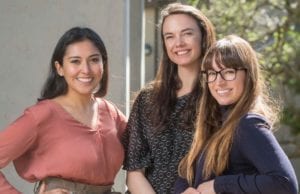
“Our goal was to support professors at Haas and globally to easily identify DEI-related cases that can be used in their classrooms as well as support students who wanted to see themselves represented as business leaders in their curriculum,” Wells said.
Since publishing the compendium online last May, about 1,200 people have viewed the compendium.
Other Culture fund projects that have made a lasting impact include:
Haas Changemakers: Students enrolled in Becoming a Changemaker, an undergraduate and EWMBA leadership course taught by professional faculty member Alex Budak, are given seed funding ranging from $50-$75 to launch a small project, activity, or product that has the potential to create an impact on a local or global scale. Budak says these grants, which are given to support students’ final “Changemaker Projects,” are intended to “break down the barriers of taking action.”
Here@Haas Podcast: An offshoot of the OneHaas podcast, the Here@Haas podcast tells the stories of current students, staff, and faculty. Since going live in April 2020, the podcast has been downloaded 15,000 times in 50 countries. Podcast host Paulina Lee, EWMBA 22, said the podcast has been a boon to the Haas community. “I’ve gotten to know so many people that I don’t think I would’ve met had I not joined the podcast team,” said Lee. “I love hearing other people’s stories and I’m deeply moved when students tell me that our podcast persuaded them to come to Haas.”
Shock, insecurity and endless war: How 9/11 changed America and the world
Andrew MacNeil, EMBA 17: Helping allies in the midst of terror
Ten new professors join Haas faculty
Berkeley Haas welcomes 10 new professors to its tenure-track faculty this fall. Their expertise ranges from mergers and acquisitions to real estate finance to marketing to corporate growth and innovation. Other new faces include two new visiting professors and 10 new lecturers.
We spoke with our new ladder faculty members to learn what they’ll be working on, what they’ll be teaching, and why they chose to join Haas.
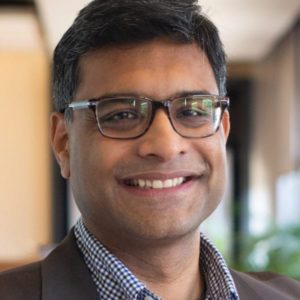
Saikat Chaudhuri
Title and Academic Group: Faculty Director, Management, Entrepreneurship, & Technology (M.E.T.) Program; Grimes M.E.T. Chancellor’s Chair; Teaching Professor of Entrepreneurship & Innovation, Management of Organizations, and Mechanical Engineering (Joint Appointment, Haas School of Business and College of Engineering)
PhD institution and degree area: Harvard Business School; Technology and Operations Management
Describe your research focus: My research focuses on corporate growth and innovation strategies, particularly high-tech mergers and acquisitions, high-value strategic partnerships and outsourcing, and technological innovation in dynamic environments.
Class(es) you’ll teach: Management, Entrepreneurship, & Technology Introductory Topics (Undergraduate Program); Management, Entrepreneurship, & Technology Capstone Course (Undergraduate Program); Chief Digital Officer Program, (Berkeley Executive Education, Co-Faculty Director)
Most excited to work on: As the inaugural faculty director of the M.E.T. Program, I’m excited to build out this dual-degree program in engineering and business to help create leaders who will integrate the two areas and solve the world’s most pressing challenges in a scalable and sustainable way. I’m also keen to expand my work on external sourcing of innovation to provide insight for established and emerging firms in navigating disruptions.
Why Berkeley Haas: I moved here because I cannot imagine a better place right now to blend technology with business, and thereby impact companies, the economy, and society. Berkeley’s cutting-edge thought leadership, extensive alumni base, and thriving entrepreneurial ecosystem in the region make it the ideal platform for my work. Not to mention the distinctive and appealing culture Berkeley Haas has created with its Defining Leadership Principles that are embraced by everyone around.
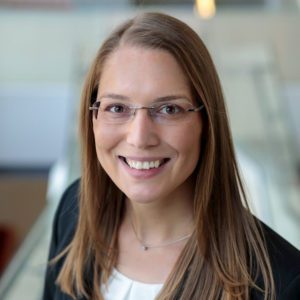
Title and Academic Group: Assistant Professor, Marketing
PhD institution and degree area: The Wharton School, University of Pennsylvania; Decision Processes
Describe your research focus: I study the psychology of consumer judgment and decision making. I am particularly interested in understanding how consumers make decisions under uncertainty and how they use advice—for example, when trying to forecast the course of the current pandemic.
Class(es) you’ll teach: Decision Making (MBA Program)
Most excited to work on: I am most excited to investigate how to best communicate the inherent uncertainty of the world to people in a way that can help them improve their own predictions and decisions.
Why Berkeley Haas: Behavioral researchers at Berkeley Haas are at the forefront of improving research practices across psychology and the social sciences and have shaped our field in important ways. I am excited to become part of this community.
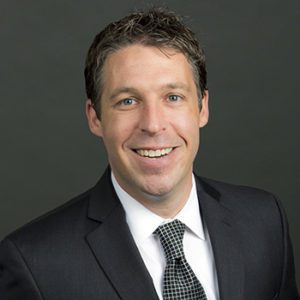
Title and Academic Group: Associate Professor, Economic Analysis & Policy
PhD institution and degree area: NYU Stern School of Business; Strategy and Economics
Describe your research focus: My research examines how complex incentives and imperfect information endemic to health care markets affect how technologies are adopted, priced, and ultimately deliver value for society. Recent work relates to business and public policy debates regarding price transparency, relationships between physicians and industry, regulation of new products, and antitrust concerns about market power in the health care sector.
Class(es) you’ll teach: Life Sciences Business and Entrepreneurship (Undergraduate Program); Data Analytics (MBA Program)
Most excited to work on: One of my hats will be as faculty co-director of the new Robinson Life Sciences Business & Entrepreneurship Program, a joint undergraduate program between Haas and the Department of Molecular and Cell Biology. I can’t wait for us to grow this new program, which leverages the diverse strengths of Berkeley and the Bay Area to develop life sciences business leaders of the future.
Why Berkeley Haas: I believe that Berkeley Haas is the heart of what’s next, leading entrepreneurship and innovation at the intersection of life sciences and technology. I hope to work with others in the community, using business to build a more inclusive, sustainable, and healthy society.
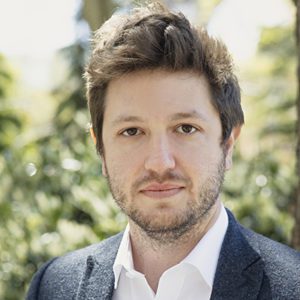
Title and Academic Group: Assistant Professor, Management of Organizations (MORS) and Entrepreneurship & Innovation
PhD institution and degree area: MIT Sloan School of Management; Information Technology
Describe your research focus: I study the design of online marketplaces and platforms using large-scale online field experiments and novel digital trace data. My research agenda focuses on online trust and reputation system design, the business and societal impacts of personalized recommendations, and the design and analysis of field experiments in online marketplaces.
Class(es) you’ll teach: Online Marketplace and Platform Design (MBA Program)
Most excited to work on: I’m most excited to deepen and expand ongoing research collaborations with firms such as Airbnb, Spotify, and Etsy. Because much of my research involves collaborating with large internet firms to conduct field experiments, I’m constantly having conversations with product teams and learning about fascinating new problems that tech firms face. At the moment, I’m particularly excited about an ongoing project with Spotify, in which we are trying to understand how personalized recommendations shape both the individual-level and population-level diversity of content consumption, and what business implications that might have for a firm like Spotify.
Why Berkeley Haas: There are so many reasons that I’m excited to join Haas! First, there are tons of faculty members that I’m excited to collaborate with and learn from, not only in the MORS and Entrepreneurship and Innovation groups, but also in other academic groups across the school. I’m also looking forward to getting to know the brilliant students at Haas. Finally, Haas’ proximity to San Francisco and Silicon Valley will be very useful, both in terms of establishing research collaborations and in terms of keeping up-to-date with what is happening on the innovation frontier in tech.
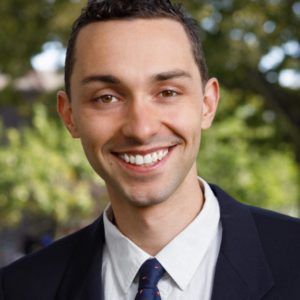
Title and Academic Group: Assistant Professor, Finance
PhD institution and degree area: Harvard University; Economics
Describe your research focus: My research spans finance, macroeconomics, and behavioral economics. In recent work, I study how over-optimistic beliefs can lead to a buildup of crash risk in financial markets, and how present bias affects households’ response to fiscal and monetary policy.
Class(es) you’ll teach: Introduction to Finance (MBA Program)
Most excited to work on: I’m excited to continue my research on financial crises. Can crises be predicted? Are there errors in judgement that consistently amplify systemic risk? How should policymakers respond to early warning signs, and how should they respond after panics have already broken out? There is still so much that we need to learn!
Why Berkeley Haas: My research is interdisciplinary, and that’s something that fits perfectly into the Berkeley Haas culture. I’m really excited to be able to draw on the knowledge of so many incredible colleagues across both Haas and the broader UC Berkeley community.
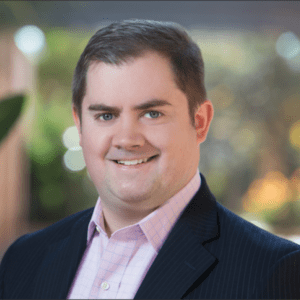
Title and Academic Group: Associate Professor, Real Estate, Finance, EIG
PhD institution and degree area: Harvard University; Economics
Describe your research focus: My overall, broad research agenda strives to provide empirical and quantitative guidance on important policy questions related to housing, household finance, and innovation. My approach is multi-faceted, bringing to bear novel datasets, quasi-experimental, reduced-form estimates, and finally, structural, theory-based modeling.
Class(es) you’ll teach: New Venture Finance (MBA Program)
Most excited to work on: I’m currently pursuing a broad range of issues in affordable housing policy.
Why Berkeley Haas: Berkeley Haas has world-class faculty working on exciting and innovative research. Moreover, given that my research interests span real estate, finance, and innovation issues, I could not ask for a better fit.
Title and Academic Group: Assistant Professor, Marketing
PhD institution and degree area: University of Chicago Booth School of Business; Marketing
Describe your research focus: I study the implications of information frictions on firms and consumers. My recent work has focused on excess product variety in platform markets and organizational frictions in airline pricing.
Class(es) you’ll teach: Marketing Analytics (MBA Program)
Most excited to work on: I’m excited to continue working on research that builds on firm-researcher collaboration. These projects let us look “under the hood” at how the cutting edge of marketing research and theory does (and sometimes doesn’t) work in the real world.
Why Berkeley Haas: Great colleagues! I am excited to join the wonderful group of marketing scholars and to be part of the broader Haas research community.
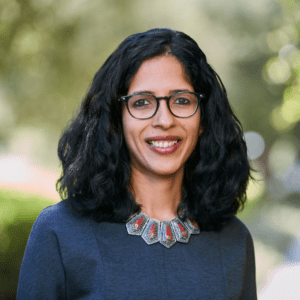
Aruna Ranganathan
Title and Academic Group: Associate Professor, Management of Organizations (MORS)
PhD institution and degree area: MIT Sloan School of Management; Management
Describe your research focus: My research is focused on the many facets of work: the satisfaction it can bring, how it affects the economic decisions we make, how it shapes demographic inequality and how it intersects with technological change.
Class(es) you’ll teach: Managing People in the Global Context (MBA Program)
Most excited to work on: Gender inequality in the music industry
Why Berkeley Haas:
Berkeley’s social mission and history of supporting disenfranchised and marginalized populations aligns very well with my focus on furthering the cause of low-income, but skilled workers all around the world.
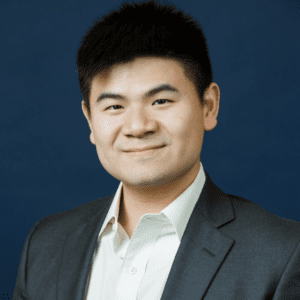
Title and Academic Group: Assistant Professor, Operations and IT Management (OITM) Group
PhD institution and degree area: The Wharton School, University of Pennsylvania;
Operations, Information, and Decisions
Describe your research focus: My main focus is behavioral and data-driven operations management for the future of work and services. I’m currently focusing on designing incentives for on-demand/gig workers, and developing algorithms to help humans improve their decision-making and learn to improve performance on the job.
Class(es) you’ll teach: Introduction to Business Analytics (Undergraduate Program)
Most excited to work on: Designing new human-centric operational strategies for flexible and digital organizations, improving human-AI interfaces, making a positive social impact, and helping marginalized populations in the workforce through my research.
Why Berkeley Haas: From the groundbreaking research initiatives to developing close connections to industry leaders, Haas is truly the heart of what’s next, especially for my interest in the future of work. I look forward to connecting and collaborating with experts at Haas, Berkeley, and the greater Bay Area. I also spent the summer of my freshman year at Haas through the BASE Summer Program and fell in love ever since!
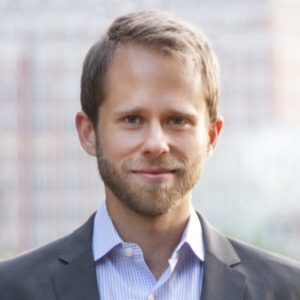
Title and Academic Group: Assistant Professor, Business and Public Policy (BPP) Group
PhD institution and degree area: Harvard University; Political Economy and Government
Describe your research focus: My research primarily explores the role of state capacity in development with a focus on taxation. I’m also interested in the co-evolution of culture and institutions. I run a social science research lab in Kananga, Democratic Republic of Congo, where most of my recent work is based. I’m often looking for students to work with as research assistants/managers in Kananga and would encourage anyone who might be interested to get in touch.
Class(es) you’ll teach: Ethics (MBA Program)
Most excited to work on: I’m excited to work on several projects that explore social norms and social networks within the Haitian state; the legal antecedents to fiscal capacity in a weak state setting; and how progressive taxation shapes citizen compliance and state revenue in Congo.
Why Berkeley Haas: First and foremost, the amazing colleagues and research community in the political economy of development. The BPP group is at the frontier of empirical political economy research and I am eager to soak up the group’s wisdom and hopefully convince some colleagues to work in Congo with me. I also love the outdoors and plan to get lost in the Northern California wilderness early and often. I’m a runner and always looking for new running companions.
In addition to the 10 new ladder faculty members, Haas welcomes visiting professors Harris Sondak and Matthew Backus, along with new lecturers Jill Vialet, John Goldstein, Anne Simpson, Keval Desai, Mathieu Aguesse, Chris Jones, David Chen, Steve Johnson, Joe South, and Ashley Weinstein-Carnes.
Nicole Sanchez, MBA 12: Emphasizing DEI on the organizational culture
Senior Lecturer Holly Schroth: The art of negotiations
Haas welcomes new evening & weekend, exec MBA classes to campus
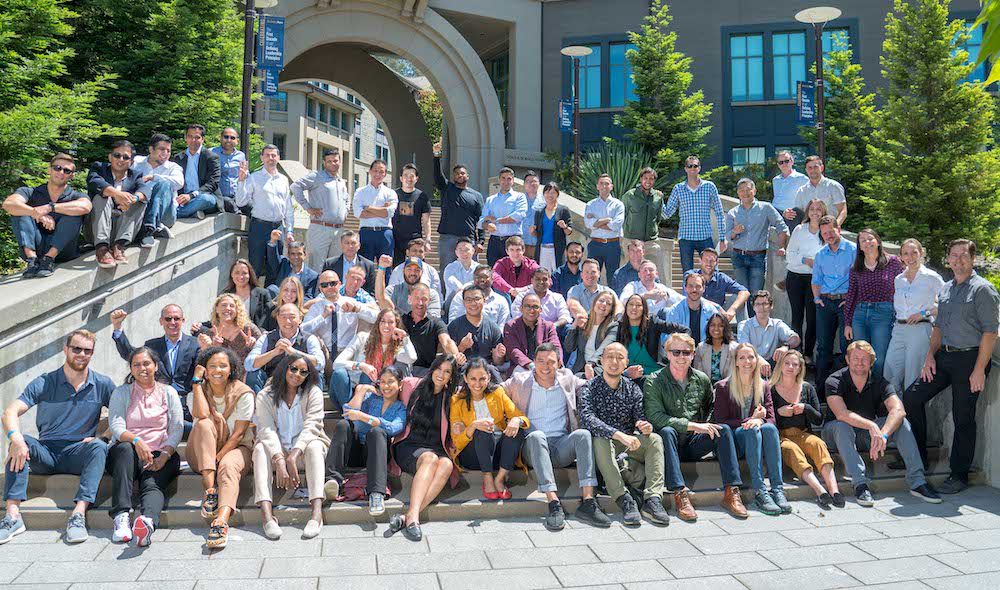
Berkeley Haas welcomed 354 new students in the MBA for Executives and Evening & Weekend MBA programs for in-person orientation in July, the first time since the start of the pandemic.
These working professional students, along with Master of Financial Engineering (MFE) students who returned in June, are the first cohorts in 16 months to kick off the semester on campus.
Executive MBA (EMBA) Program
During orientation, held July 16-18 in Spieker Forum, a total of 71 EMBA students participated in bonding activities and workshops, including a scavenger hunt, a diversity and equity session led by Kellie McElhaney, executive director of the Center for Equity, Gender & Leadership, and a condensed version of a popular MBA class called The Science of Productivity and Performance, which focuses on strategies to yield high-performance at work and school.
Women make up 30% of the class and 17% have either served or are currently serving in the U.S. military. Members of the class represent 64 companies including Google, Facebook, Deloitte, Chevron, and Oracle and have an average of 13 years of work experience.
Emma Daftary, executive director of the 22-month EMBA program, praised students for choosing Haas and reassured them that they have what it takes to successfully complete the program.
“If you hear a little voice called imposter syndrome, tell it to be quiet because you belong here,” Daftary said. “You’re here with people who are going to push you to be your best selves and we’re here to support you every step of the way.”
Susan Petty, director of EMBA admissions, noted that this class was the most geographically diverse cohort in the program’s history. Sixty-five percent of students live outside of the Bay Area, including Hawaii, New Mexico, Washington, D.C., and Brazil, and about a third of the class were born outside of the United States, hailing from Ukraine, China, India, Japan, Uzbekistan, and Taiwan.
Why an MBA?
When Cassie Dickerson, EMBA 23, was applying to b-schools, a friend from her undergraduate days at Ohio State, Isaiah Samuel, EMBA 20, suggested she add Berkeley to her list. Dickerson attended a diversity event at Haas last fall and fell in love with the people and culture.
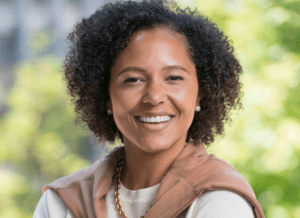
“Everyone I met exemplified Haas’ DLPs,” Dickerson said, a technology business strategist for GoHealth. “People showed up as their authentic selves and that deeply resonated with me.”
Naveena Gopinath, an IT database consultant at OptumServe, said it was her father’s entrepreneurial spirit that inspired her to pursue an MBA.
“My dad was an entrepreneur who owned many businesses, including a real estate and an exporting business in India,” said Gopinath, EMBA 23. “Seeing him pursue his passions pushed me to pursue mine.”
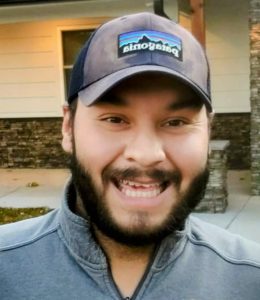
Gopinath had her choice of top business schools, but ultimately decided to attend Haas because of the people she met and the school’s Defining Leadership Principles (DLPs). She had worked in a mission-driven workplace before and wanted a similar MBA experience. Now that she’s at Haas, she can only imagine how the DLPs will transform her, she says.
Johnny Zaragoza, EMBA 23, was accepted to Haas last year, but decided to defer for a year to take care of his family during the pandemic.
Zaragoza, a controller at San Francisco-based management firm White Oak Global Advisors, said he chose Haas because he had a transformational experience during Block Zero. “The support you get from the program office, career management group (CMG), and your peers, is bar none.”
Evening & Weekend MBA Program (EWMBA)
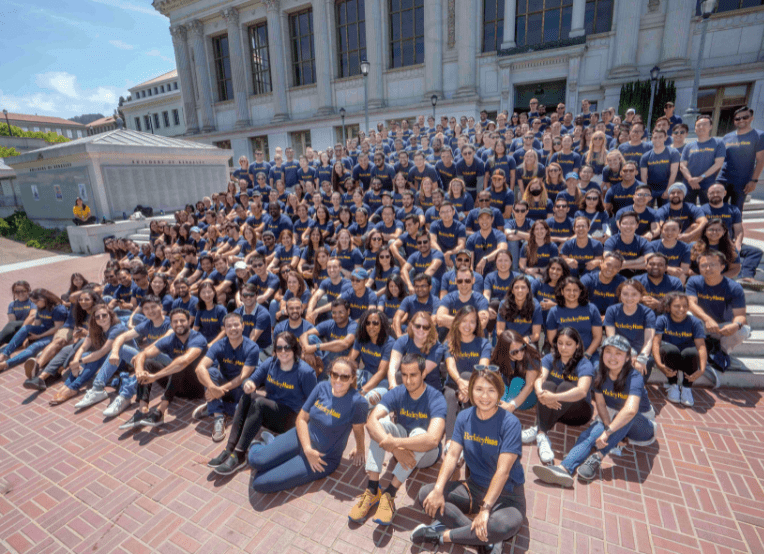
Berkeley Haas’ newest EWMBA class also arrived on campus for WE Launch orientation July 23-26.
Collectively, the 283 students have an average of eight years of work experience and represent 213 leading global companies, including Google, Apple, Amazon, Facebook, LinkedIn, Uber, Microsoft, and Chevron. Women make up 40% of the class, a record high.
The class of 2024 is also geographically and internationally diverse. Forty-three percent were born outside the U.S. and speak 17 different languages. Almost a third of the class reside outside of the Bay Area, hailing from Colorado, Florida, Georgia, Massachusetts, New York, Japan, and Singapore.

During orientation, students participated in workshops focused on leadership communications, inclusive leadership, and case-study methods. They also heard from Career Management Group (CMG) staff and received an introduction to Teams@Haas, an academic program designed to build stronger team outcomes.
In his welcome speech, Prof. Don Moore, the associate dean of Academic Affairs, commended students for pursuing an MBA at a time when society is grappling with so many global challenges.
“There is no better place to be than a dynamic university like Berkeley that has always been on the forefront of scientific and social progress,” he said.
Moore added that Haas’ culture helps develop business leaders that the world could benefit from—leaders who question the status quo, who have confidence to create change but do it without attitude, who go beyond themselves by taking the long view in their decisions, and are students always.
“We have such a diverse and accomplished class this year,” said Jamie Breen, assistant dean of the MBA Programs for Working Professionals. “And it is so great to have our second year students on campus for the first time as well. These are the leaders that business and society need.”
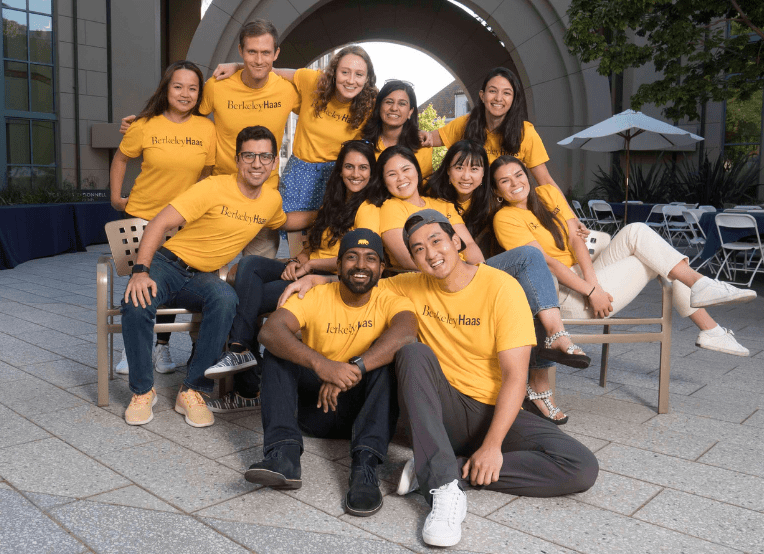
Culture plays big role
After listening to the Haas podcasts, attending a diversity event last fall, and speaking with students and alumni, Dominic Williams, EWMBA 24, said he was “all in” and applied only to Haas.
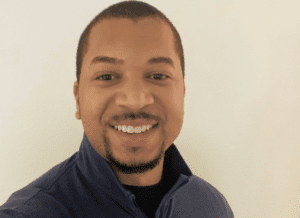
“The school’s DLPs and its focus on inclusion resonated with me,” said Williams, a program manager for consumer goods at Google. “Now that I’m here, I feel compelled to share my perspective to advance the Haas community. I don’t think I would feel this way anywhere else.”
The school’s culture was also a big draw for Christy Tormey, EWMBA 24, who works as a lead strategic planning analyst at Chevron.
“Question the status quo deeply resonates with me. As a woman mechanical engineer who works in an oil refinery, I challenge the status quo every day,” she said. “I’ve worked hard to gain a seat at the table and even harder to keep that seat. I hope to encourage and inspire all women to do the same, no matter what field of study or industry.”
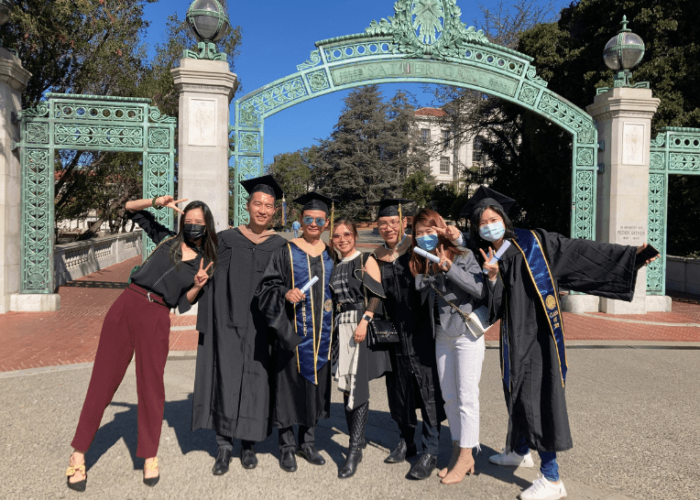
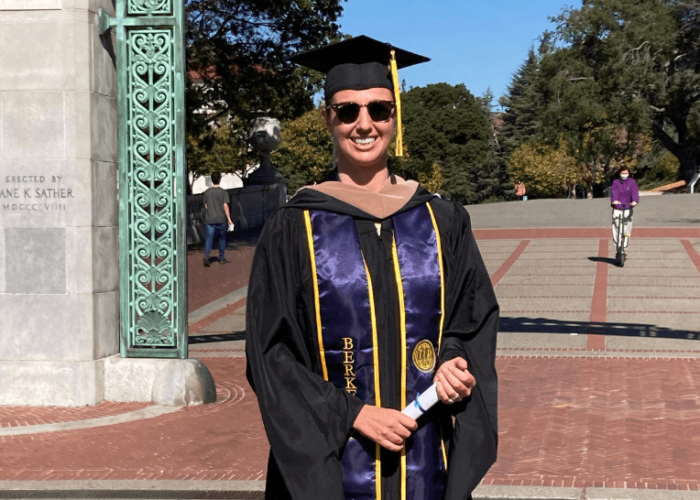
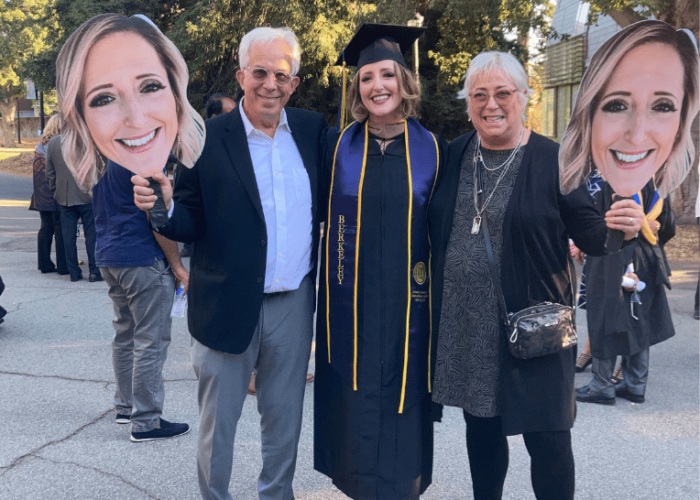
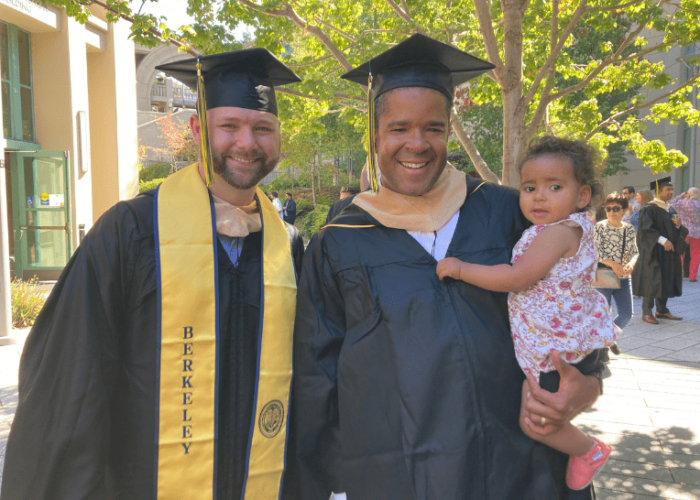
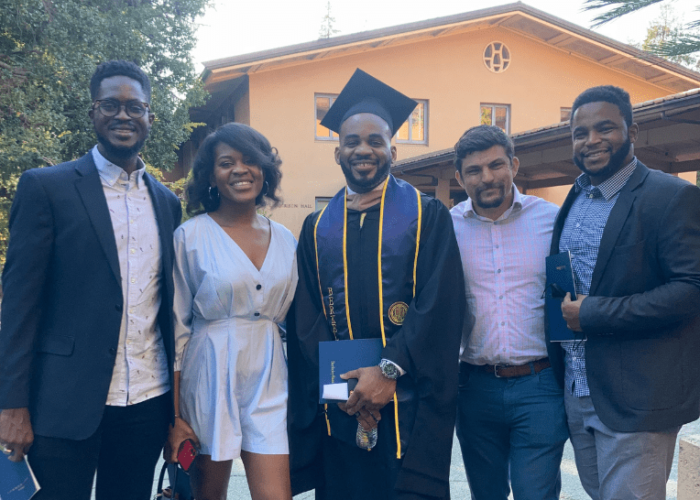
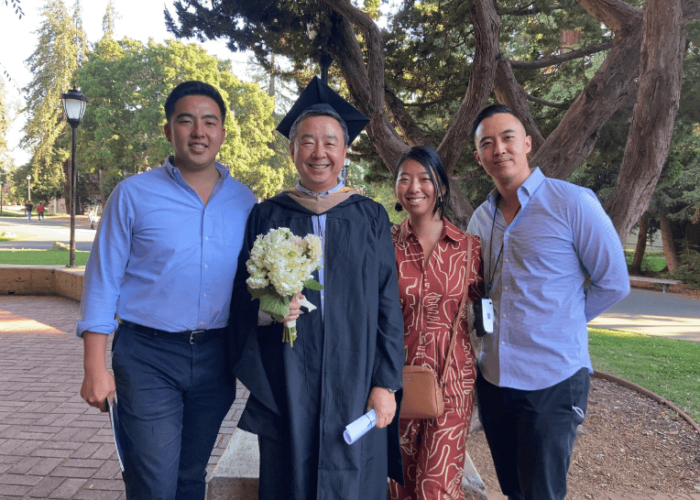
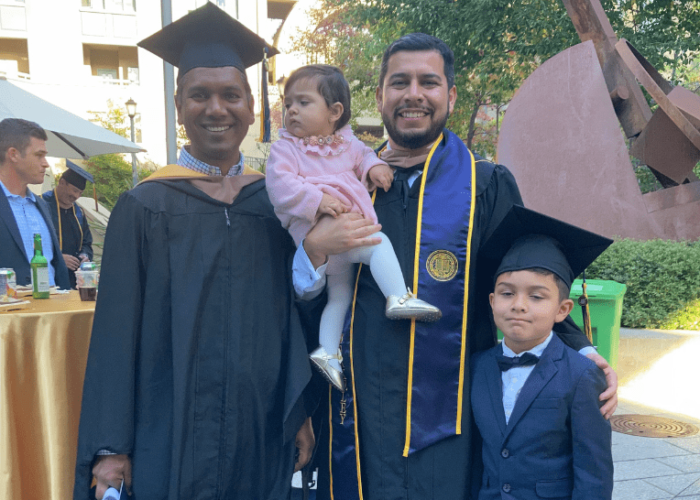
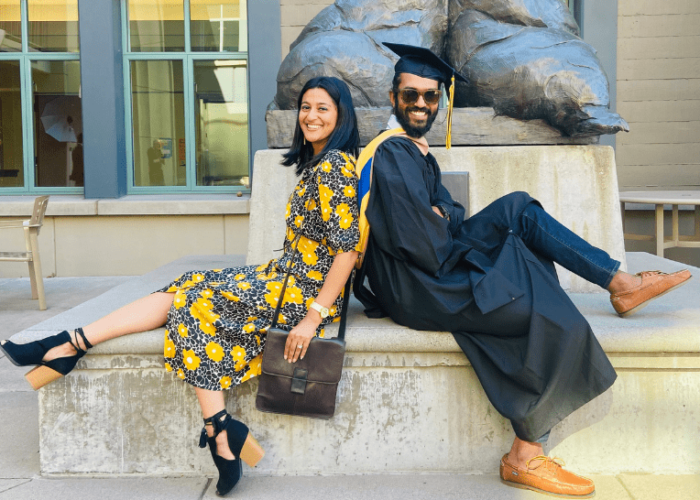
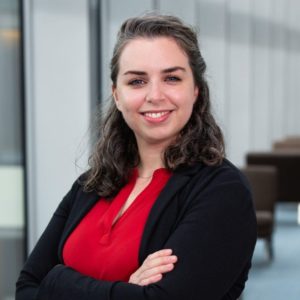 Olivia Natan
Olivia Natan